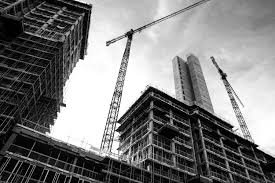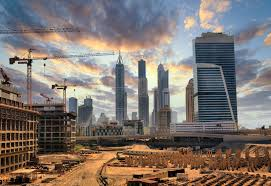
Dubai is one of the world’s fastest-growing cities, with skyscrapers, luxury villas, and massive infrastructure projects popping up across the emirate. But before any construction can begin, developers must go through a formal construction permit process regulated by Dubai authorities. Understanding how this process works is crucial for anyone planning to build in the city.
Whether you’re a developer, architect, or property investor, this article breaks down the process in simple steps and answers common questions about getting a building permit in Dubai.

A construction permit (also called a building permit) is an official approval from the Dubai Municipality or other authorized entities. It confirms that your building project follows the legal, safety, and zoning rules set by the government.
Without a valid permit, construction work is illegal and can result in heavy fines, delays, or even demolition of unauthorized structures.

The main authority responsible for issuing construction permits in Dubai is the Dubai Municipality (DM). However, depending on your project’s location and type, other entities may be involved, such as:
Each authority has its own rules, but the general permit process is similar across them.

Here’s a simplified version of the typical steps required to get your construction permit:
You must start by hiring a licensed engineering consultant registered with the relevant authority. This consultant will handle the application, design plans, and communication with the authorities.
The consultant will create a conceptual design of the building and submit it to the concerned authority for preliminary approval. This includes:
This step ensures your proposed design complies with planning and zoning regulations.
Before the final permit is approved, you’ll need NOCs from various departments, such as:
These approvals ensure the building won’t interfere with utilities or city infrastructure.
After receiving the initial approvals, your consultant submits detailed architectural, structural, and MEP (mechanical, electrical, plumbing) drawings. These must meet all local codes and regulations.
Once all approvals and NOCs are in place, the Dubai Municipality or relevant authority issues the building permit. This permit allows you to start the actual construction.
Construction begins under the supervision of your consultant and contractor. Regular site inspections will be done by the authorities to ensure safety and compliance.
After construction is finished, a Completion Certificate must be obtained. This confirms that the building is safe and ready to be occupied.
The time needed to get a construction permit can vary depending on the complexity of the project, the location, and how quickly you get the required NOCs. On average:
Hiring an experienced consultant helps speed up the process significantly.
Permit costs vary depending on the size and type of your project. Charges may include:
Typical permit fees for a villa range from AED 10,000 to AED 30,000, while larger projects can run into the hundreds of thousands of dirhams.
Dubai’s government is moving toward a fully digital experience. Platforms like Dubai Building Permit System (DBPS) allow consultants to apply for permits, submit drawings, and track approvals online. This initiative is part of Dubai’s Smart City vision, making the process more transparent and efficient.
These mistakes can cause costly delays and legal issues.
The construction permit process in Dubai is well-structured but requires careful planning, professional guidance, and patience. Whether you’re building a home, a commercial tower, or an industrial facility, understanding the rules and following the right steps can help you avoid delays and penalties.
With Dubai pushing toward digital transformation and smart governance, obtaining construction permits is becoming faster and more user-friendly than ever before.
If you’re planning a project in Dubai, start early, work with qualified professionals, and make use of online tools to ensure a smooth and successful permit process.
Read More:- Shobha Realty Launches Its Most Luxurious Project Yet—Full Details Inside 2025
